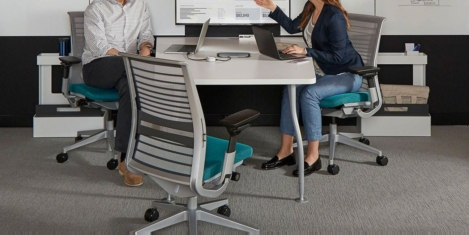May 9, 2017
People in the gig economy need autonomy and good work too, argues RSA 0
 Gig economy workers should be given more power to hold companies to account under the law as a first step to making the new er of work fit for the future, according to a new report and survey published by the RSA. Good Gigs: A fairer future for the UK’s gig economy recommends the burden of proof be shifted to companies to prove gig workers are not employees, and that penalties should be strengthened against companies who use clauses that prohibit employment status litigation. As part of the project, the RSA undertook the largest ever survey on Britain’s gig economy, which reveals that there are currently 1.1 million people working in Britain’s gig economy, making it almost as big as NHS England.
Gig economy workers should be given more power to hold companies to account under the law as a first step to making the new er of work fit for the future, according to a new report and survey published by the RSA. Good Gigs: A fairer future for the UK’s gig economy recommends the burden of proof be shifted to companies to prove gig workers are not employees, and that penalties should be strengthened against companies who use clauses that prohibit employment status litigation. As part of the project, the RSA undertook the largest ever survey on Britain’s gig economy, which reveals that there are currently 1.1 million people working in Britain’s gig economy, making it almost as big as NHS England.








 The majority of UK employees recognise the importance of data literacy to their career progression, but half have never been offered any relevant training. Statistics from a study of over 3,000 UK employees shows they understand the growing significance of data within their organisation, with almost all (94 percent) of those surveyed stateing that they consider data to be important for performing their role. Data skills were ranked as fourth in a list of the most important skills for their job – with only traditional, ‘soft’ skills such as ‘communication’, ‘organisation’ and ‘people management’ ranking higher. Yet the Censuswide survey, commissioned by Tableau revealed that despite four in five professionals (84 percent) believing data skills will be important for their career progression and a similar percentage (83 percent) using data on a weekly basis as part of their role, nearly half (49 percent) say their employer hasn’t offered them any kind of data analytics training.
The majority of UK employees recognise the importance of data literacy to their career progression, but half have never been offered any relevant training. Statistics from a study of over 3,000 UK employees shows they understand the growing significance of data within their organisation, with almost all (94 percent) of those surveyed stateing that they consider data to be important for performing their role. Data skills were ranked as fourth in a list of the most important skills for their job – with only traditional, ‘soft’ skills such as ‘communication’, ‘organisation’ and ‘people management’ ranking higher. Yet the Censuswide survey, commissioned by Tableau revealed that despite four in five professionals (84 percent) believing data skills will be important for their career progression and a similar percentage (83 percent) using data on a weekly basis as part of their role, nearly half (49 percent) say their employer hasn’t offered them any kind of data analytics training.
























